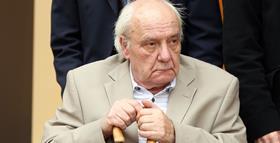Lay readers understand the special meaning of words used by lawyers, the Court of Appeal has said, dismissing a libel claim over a Crown Prosecution Service press release.
The judgment in Bukovsky v Crown Prosecution Service states that the appellant, was charged in 2015 with a number of offences, including making indecent photographs of children contrary to section 1 of the Protection of Children Act 1978. The charges were related to images allegedly downloaded and stored on his personal computer.

A press release stated that the defendant, Vladimir Bukovsky faced five counts of 'making an indecent photograph'. Bukovsky brought an action for defamation on the grounds that an ordinary reader might understand the words to mean that he had been directly involved in, or at least present at the scene of, the sexual abuse of children. The claim was struck out in the High Court by Mr Justice Warby, now head of the Media and Communications List, last year.
On appeal, Greg Callus of media and communications set 5RB argued the 'hypothetical ordinary and sensible reader' would not understand that the word 'making' had a particular meaning in the context of a criminal statute which included downloading.
However, Lord Justice Simon, giving the lead judgment, backed the High Court's decision. He said a 'crucial feature' of the words complained of was the context of the publication - in this instance, an announcement by a prosecuting authority of a decision to prosecute the appellant in which the words used 'directly reflected the statutory language'.
'Words can have a special meaning when used in statutes and by lawyers,' Simon said. The phrase 'making a photograph' does not necessarily imply that the maker was present at the time the photograph or image was made, he added. The fact that the phrase is not in ordinary usage would alert the lay reader to the technical nature of the statement.
Lord Justice Peter Jackson and Lord Justice Gross agreed.
Bukovsky, a prominent former Soviet dissident and critic of the current Russian government, denies all charges. He is due to appear in court in February 2018.


























